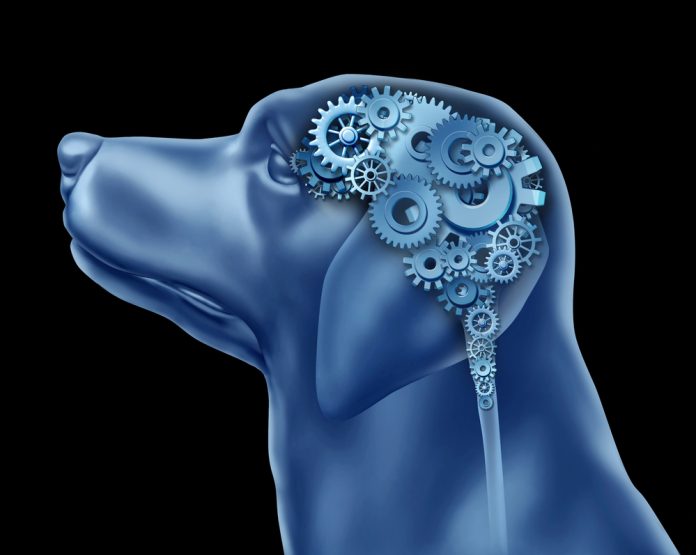At Caja, we help people become Changemakers by giving them the power of behavioural science through training at our academy sessions. During one of these sessions, as I listened to stories of real-world behaviour change, I had a realisation. The same core concepts in behavioural science that are crucial for driving human behaviour change also played a crucial role in one of my biggest personal challenges: transforming my rescue dog, Bobby. His journey from anxious and unpredictable to confident and thriving was a masterclass in behaviour change. Let me take you through it.
When I first met Bobby, a timid and anxious spaniel at the Blue Cross, I could tell he carried the weight of a difficult past. He spent his first year of life in an environment that left him fearful, reactive, and unsure of the world around him.
I knew taking him home would be a challenge. But as someone fascinated by psychology, I saw an opportunity- not just to help Bobby, but to put behavioural science to the test. Could the same principles that set the standard for human behaviour change help a traumatised rescue dog find confidence and trust again?
The answer, as I would come to learn, was yes.
Understanding Bobby’s Normal Behaviour
When we try to change behaviour, we always measure how successful we have been by referring back to a baseline- the original level of behaviour before we try to encourage changes. Before stepping in, I needed to observe Bobby’s natural reactions:
- He often barked at strangers.
- He couldn’t stay long anywhere unfamiliar without being stressed.
- He was startled by most noises.
This baseline gave me something to compare against so I could track whether the training I was doing was working.
After years of training Bobby:
- He rarely barks at strangers (unless it’s the postman… work in progress!).
- He can stay and settle in unfamiliar places.
- He is only startled by loud noises (which is a natural reflex, so we’ll let him off!).
Now I can confidently say the training I have been doing has caused this positive shift in behaviour. If I hadn’t taken the time to look at Bobby’s behaviour before I started, I wouldn’t have a clue how he’s changed and whether it was due to my training.
Behaviour Change Isn’t One-Size-Fits-All
The biggest mistake we can make? Assuming there is a universal fix. It’s tempting to think that a single method will work for everyone, every time. But real-life behaviour change, whether in dogs or people, is rarely that simple.
Just like people, every dog has its own personality, triggers, and learning style. Some are highly food-motivated while others respond better to praise or play. What worked wonders for Bobby might not work for another dog.
It’s not about rigidly applying a one-size-fits- all approach. It’s about understanding and responding to what each dog needs. The best results come when we tailor our methods to meet people, and dogs, where they are, instead of expecting them to all conform.
Adapting As Bobby’s Needs Changed
What works today may not work tomorrow. Some days Bobby made great progress; other days the same approach had little effect.
At first, he was motivated by hot dogs, but then the taste worn thin. Then I had to tweak my approach, swapping for gammon- Bobby’s version of my chocolate, no doubt.
I had to constantly reassess and adapt, exactly as we do when seeking to change human behaviour. Progress isn’t always linear, and what motivates us one day may lose its power the next. It’s a constant cycle of observing- testing- comparing- and adapting.
Setting an Ethical Goal
Bobby’s transformation didn’t happen overnight. It took years of patience, consistency, and commitment. But more than anything, it required setting a goal that wasn’t just achievable, but also ethical.
An ethical goal prioritises wellbeing over results. True behaviour change isn’t about just getting from point A to point B, it’s about ensuring the journey itself is positive. For Bobby, that meant taking small steps and massively celebrating successes. This gradual approach ensured his journey wasn’t just enjoyable, but also sustainable.
This philosophy is the foundation of all behaviour change, whether in dogs or humans. When we set ethical goals, we create an environment where positive change can actually happen.
The Science of Change, The Power of Love
Having knowledge of the behavioural science concepts that underpin behaviour change gave me the framework I needed to change Bobby’s behaviour, but love and patience made it work. Today, Bobby is a different dog to the one I first met at the Blue Cross.
If you’ve ever considered adopting a rescue dog, know this: the journey may not be easy, but by considering these key concepts from behavioural science, you won’t just change their life- you’ll change yours too.




